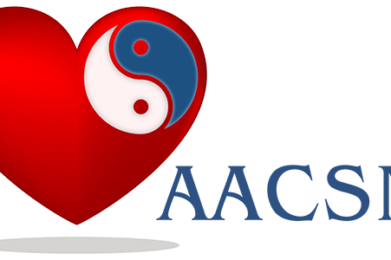A growing body of research shows that athletes obtaining insufficient sleep have significantly higher injury rates. For example, a recent narrative review reports that athletes sleeping fewer than 7 hours per night exhibit roughly 1.7 times the musculoskeletal injury risk of well-rested peers[i]. In a prospective cohort of 340 adolescent elite athletes, those averaging >8 hours of sleep on weekdays had 61% lower odds of new injury (OR≈0.39) than those with shorter sleep[ii].
College athletes sleeping 6–9 hours (versus less) show significantly reduced incidence of injury.[iii] In male NCAA Division I basketball players, each additional hour of sleep was associated with a 43% drop in next-day injury risk[iv].
Studies show that sleeping less than 6–7 hours severely affect performance and doubles injury rates. A meta-analysis of sleep and performance further confirms that even short-term sleep loss significantly degrades reaction time, accuracy, strength and endurance in athletes[v] – deficits likely contributing to more injuries.
Sport-Specific Case Studies
Several cohort and team studies illustrate the sleep–injury link:
- In a study of 24 collegiate women’s soccer players, those sustaining multiple injuries averaged significantly fewer nightly sleep hours than uninjured teammates[vi].
- A study of 19 male NCAA basketball players found sleep duration was the only significant predictor of in-season time-loss injuries[vii].
- In women’s volleyball, a multi-month tracking study (17 players, 54 injuries) showed every injury was preceded by a night of shorter sleep, leading authors to declare sleep loss an “independent risk factor” for musculoskeletal injury[viii]. Even extreme cases highlight the effect: twelve collegiate men who played an uninterrupted 61-hour volleyball game (with almost no sleep) suffered widespread muscle overstrain injuries[ix].
- In younger athletes, insufficient sleep strongly predicts concussion risk. One prospective study of ~600 student-athletes grouped by sleep found those sleeping ≤5.8 h (vs. >7.0 h) were nearly twice as likely to sustain a sport-related concussion (15.7% vs. 8.8% incidence)[x].
Physiological Mechanisms
Biological effects of sleep loss help explain the injury link. Chronic sleep restriction disrupts endocrine and metabolic processes critical for recovery. Studies show that sleep deprivation elevates cortisol and other stress hormones, driving muscle protein breakdown and impairing glycogen repletion. As a result, muscle recovery is inhibited, and athletes experience higher perceived effort and fatigue during training. Even modest sleep reduction raises pro-inflammatory cytokines in blood, creating a systemic catabolic environment that can weaken connective tissues and delay healing. Poor sleep also alters metabolic appetite signals (ghrelin/leptin), potentially disrupting nutrition and energy balance needed for tissue repair. In female athletes, inadequate sleep may compound hormonal variability (e.g. estrogen fluctuations) and impair neuromuscular control, further elevating injury risk.
Athletically, optimal sleep is when growth hormone and anabolic processes are maximally active (deep NREM sleep). Without this restorative sleep, microtrauma from training accumulates. In short, sleep deprivation blunts the body’s repair and regeneration capacity. One review concludes that any significant shortfall in sleep “inhibits muscle recovery” and predisposes athletes to overtraining and injury.[xi]
Cognitive and Neuromuscular Effects
Sleep loss also undermines the brain’s control of movement and cognition. Numerous laboratory studies have documented that even acute sleep deprivation slows reaction times, reduces coordination, and degrades decision-making – all critical for avoiding injury. For example, the Rygielski 2019 study notes “clear negative effects” of sleep loss on athletes’ reaction time, accuracy, vigor and cognitive functions (judgment, decision-making). According to the Vitale 2019 study, mechanistically, <7 h of sleep impairs vigilance and alertness, making athletes slower to perceive and respond to on-field hazards. Motor learning is also compromised: sleep-deprived athletes exhibit poorer technique and balance, increasing biomechanical stress during play. In practice, a sleep-deprived player is more likely to misjudge a jump, mistime a tackle, or lose balance – events that directly raise injury odds.
Summary
These converging lines of high-quality evidence indicate that sleep is a critical injury-prevention factor. Athletes sleeping sufficiently recover faster, maintain neuromuscular precision, and sustain fewer injuries than their sleep-deprived counterparts. Coaches and clinicians should therefore prioritize sleep hygiene as part of athlete care and injury prevention protocols.
[i] Rygielski, A., Melnyk, B., Latour, E., Latour, M., Judek, R., Kowalczyk, Z., Płudowska, K. (2024). The Impact of Sleep on Athletes Performance and Injury Risk: A Narrative Review. Quality in Sport, 19, 54333. https://doi.org/10.12775/QS.2024.19.54333
[ii] Rygielski, A., Melnyk, B., Latour, E., Latour, M., Judek, R., Kowalczyk, Z., Płudowska, K. (2024). The Impact of Sleep on Athletes Performance and Injury Risk: A Narrative Review. Quality in Sport, 19, 54333. https://doi.org/10.12775/QS.2024.19.54333
[iii] Rygielski, A., Melnyk, B., Latour, E., Latour, M., Judek, R., Kowalczyk, Z., Płudowska, K. (2024). The Impact of Sleep on Athletes Performance and Injury Risk: A Narrative Review. Quality in Sport, 19, 54333. https://doi.org/10.12775/QS.2024.19.54333
[iv] WOJTCZAK, Karolina, SKUPIŃSKA, Olga, ANTCZAK, Joanna, FENRYCH, Urszula, LIPSKA, Julia, HAMERSKA, Laura, HAMERSKA, Julia, BOCIANIAK, Bogumił, RUTA, Damian and KAJKA, Anna. Sleep Deprivation as a Risk Factor for Injuries in Athletes. Quality in Sport. 2024;20:53480. eISSN 2450-3118.
[v] Kenneth C. Vitale , Roberts Owens , Susan R. Hopkins , Atul Malhotra, Sleep Hygiene for Optimizing Recovery in Athletes: Review and Recommendations. Int J Sports Med 2019; 40(08): 535-543
DOI: 10.1055/a-0905-3103.
[vi] Rygielski, A., Melnyk, B., Latour, E., Latour, M., Judek, R., Kowalczyk, Z., Płudowska, K. (2024). The Impact of Sleep on Athletes Performance and Injury Risk: A Narrative Review. Quality in Sport, 19, 54333. https://doi.org/10.12775/QS.2024.19.54333
[vii] Rygielski, A., Melnyk, B., Latour, E., Latour, M., Judek, R., Kowalczyk, Z., Płudowska, K. (2024). The Impact of Sleep on Athletes Performance and Injury Risk: A Narrative Review. Quality in Sport, 19, 54333. https://doi.org/10.12775/QS.2024.19.54333
[viii] WOJTCZAK, Karolina, SKUPIŃSKA, Olga, ANTCZAK, Joanna, FENRYCH, Urszula, LIPSKA, Julia, HAMERSKA, Laura, HAMERSKA, Julia, BOCIANIAK, Bogumił, RUTA, Damian and KAJKA, Anna. Sleep Deprivation as a Risk Factor for Injuries in Athletes. Quality in Sport. 2024;20:53480. eISSN 2450-3118.
[ix] WOJTCZAK, Karolina, SKUPIŃSKA, Olga, ANTCZAK, Joanna, FENRYCH, Urszula, LIPSKA, Julia, HAMERSKA, Laura, HAMERSKA, Julia, BOCIANIAK, Bogumił, RUTA, Damian and KAJKA, Anna. Sleep Deprivation as a Risk Factor for Injuries in Athletes. Quality in Sport. 2024;20:53480. eISSN 2450-3118.
[x] Halstead ME, Walter KD, Moffatt K; Council on Sports Medicine and Fitness. Sport-related concussion in children and adolescents. Pediatrics. 2018;142(6):e20183074. doi:10.1542/peds.2018-3074
[xi] WOJTCZAK, Karolina, SKUPIŃSKA, Olga, ANTCZAK, Joanna, FENRYCH, Urszula, LIPSKA, Julia, HAMERSKA, Laura, HAMERSKA, Julia, BOCIANIAK, Bogumił, RUTA, Damian and KAJKA, Anna. Sleep Deprivation as a Risk Factor for Injuries in Athletes. Quality in Sport. 2024;20:53480. eISSN 2450-3118.







